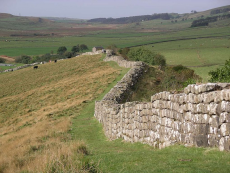
Scotland has been united with England for over 300 years, ever since the Acts of Union 1707, where both the Scottish and English parliaments mutually agreed to become “United into One Kingdom by the Name of Great Britain." The two countries have also shared the same monarch for the last 400 years, ever since King James VI of Scotland was crowned King James I of England in 1603 after Queen Elizabeth I died that year without any sons or daughters to replace her. He ruled the two nations as one, though it would take 100 years for them to be officially unified.
However, in recent years, the historic union between the England, as well as Northern Ireland and Wales, and Scotland has come under quite a strain. The Scottish National Party, a party which wants Scotland to separate from the rest of the United Kingdom, founded in 1934, has become increasingly popular with the people of Scotland. Headed by the charismatic Nicola Sturgeon, they argue that Scotland should not be ruled by the UK parliament in Westminster because they believe it to be far removed from the interests of the Scottish people.
Scotland already has its own Parliament in Edinburgh, which is allowed to propose and pass laws in certain areas of legislature, though most key decisions are still made in Westminster.
And it seems that for the last decade that the SNP’s message has chimed with a significant proportion of the Scottish electorate. The party has been the largest party in the Scottish Parliament since 2007. In 2011 the party managed to win an overall majority, paving the way for its then current leader Alex Salmond to make demands for Scotland to be able to hold a referendum on its membership of the United Kingdom. The Prime Minister David Cameron accepted Alex Salmond’s demand and so a referendum was held in September of 2014.
It was thought that Scotland would overwhelmingly vote to remain part of the United Kingdom. However, towards the end of the campaigning it looked like the Yes campaign for independence from the rest of the UK was winning. However, on the day of the referendum the majority of Scottish people voted to remain part of the UK, with 55% in favour of remaining and 45% in favour of leaving.
However, ironically the referendum only appeared to bolster the Scottish National Party’s drive for independence. Many of those who voted leave decided to become members of the party. Then only nine months after the referendum the British General elections were held and the SNP won 56 out of the 59 constituencies in Scotland, making it the third largest party in the country. This result gave it a far greater say over UK politics as a whole.
However, Nicola Sturgeon who went on to lead the party in 2014 after Alex Salmond resigned in light of the independence referendum, said that she would not demand another referendum unless there was a material change in circumstances.
Image: By Velella (Personal photograph taken by Velella.) [Public domain], via Wikimedia Commons

0 Comment:
Be the first one to comment on this article.